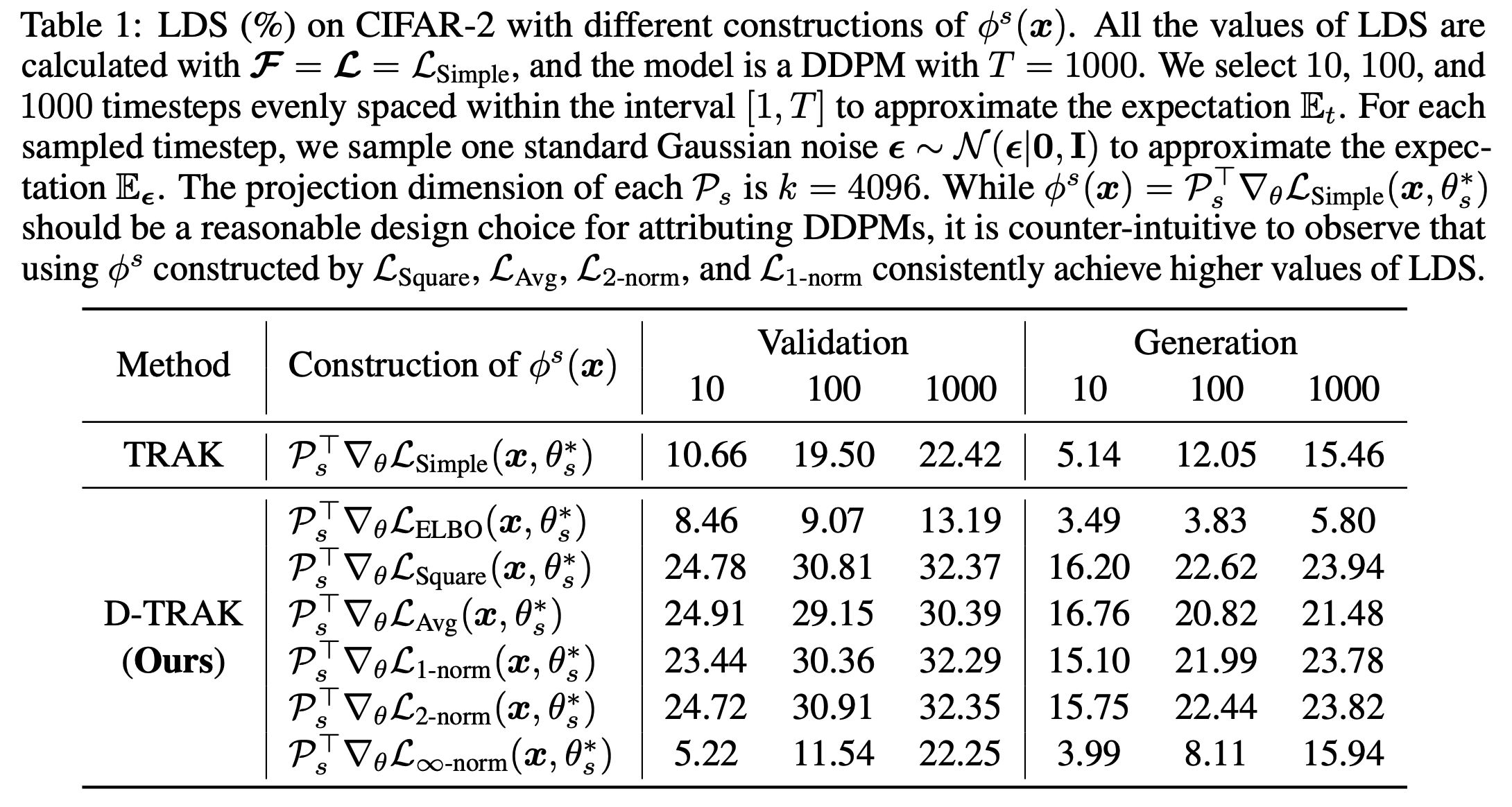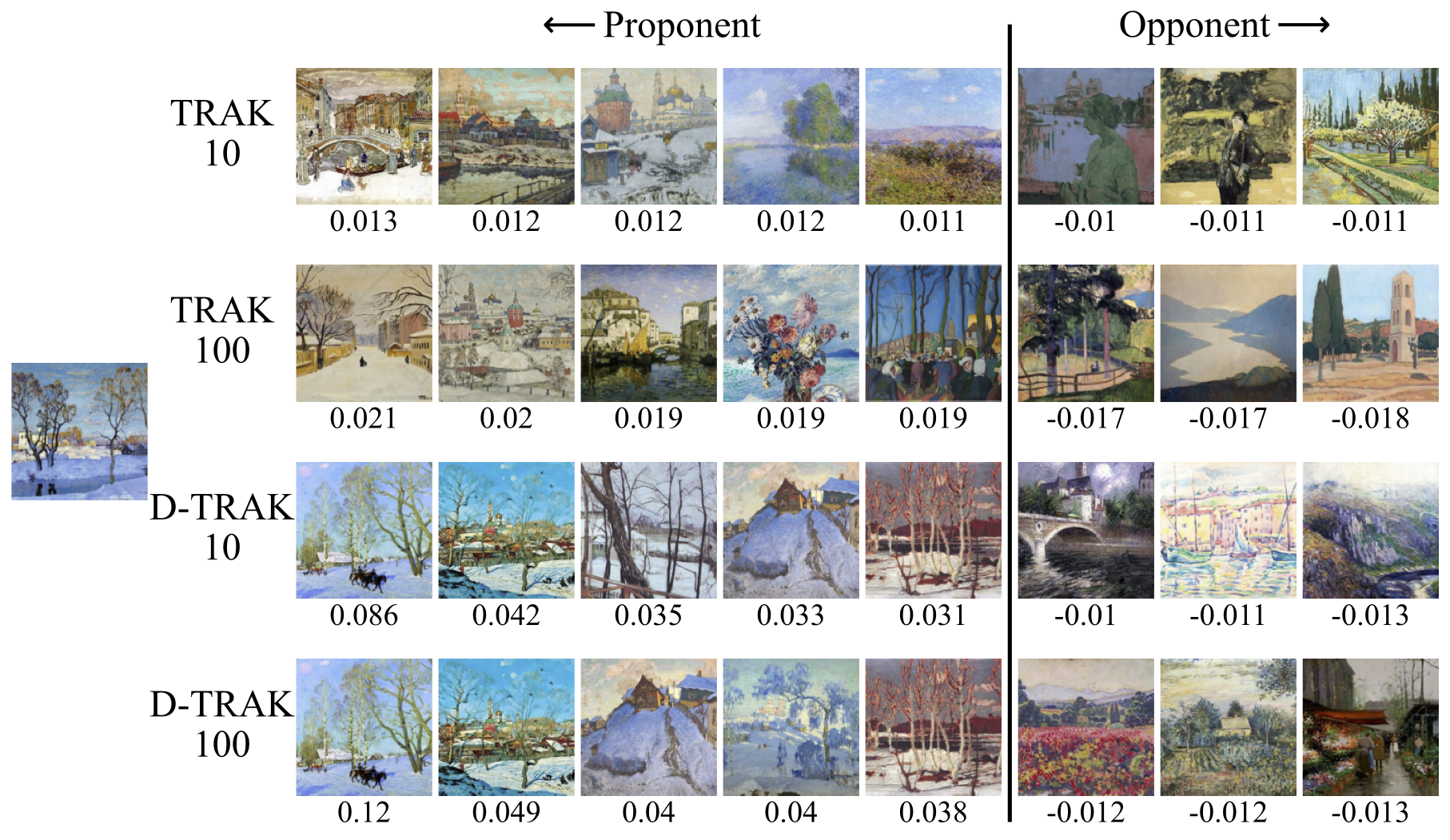Data attribution seeks to trace model outputs back to training data.
With the recent development of diffusion models, data attribution has become a desired module to properly assign valuations for high-quality or copyrighted training samples, ensuring that data contributors are fairly compensated or credited.
Several theoretically motivated methods have been proposed to implement data attribution, in an effort to improve the trade-off between computational scalability and effectiveness.
In this work, we conduct extensive experiments and ablation studies on attributing diffusion models, specifically focusing on DDPMs trained on CIFAR-10 and CelebA, as well as a Stable Diffusion model LoRA-finetuned on ArtBench.
Intriguingly, we report counter-intuitive observations that theoretically unjustified design choices for attribution empirically outperform previous baselines by a large margin, in terms of both linear datamodeling score and counterfactual evaluation.
Our work presents a significantly more efficient approach for attributing diffusion models, while the unexpected findings suggest that at least in non-convex settings, constructions guided by theoretical assumptions may lead to inferior attribution performance.







